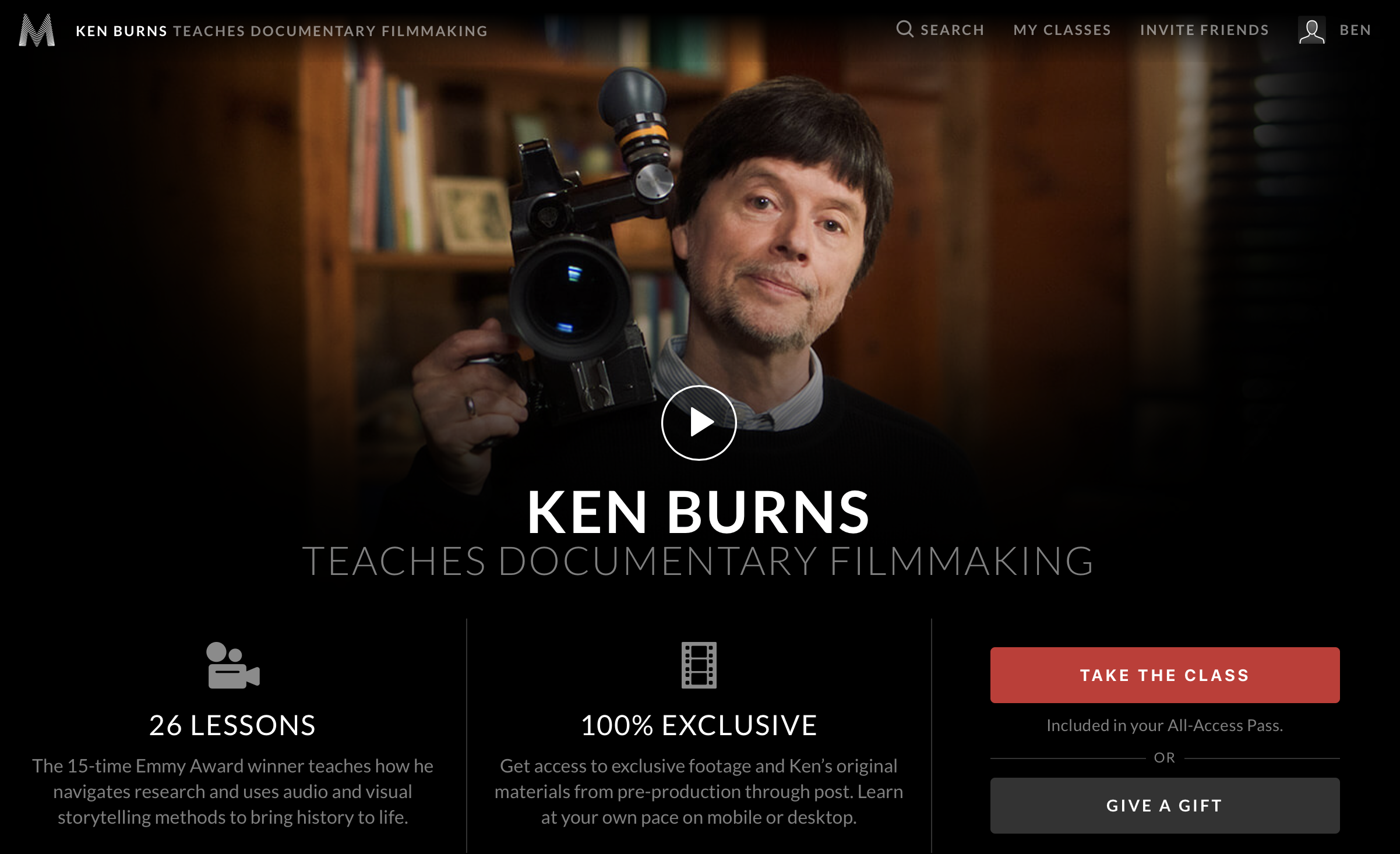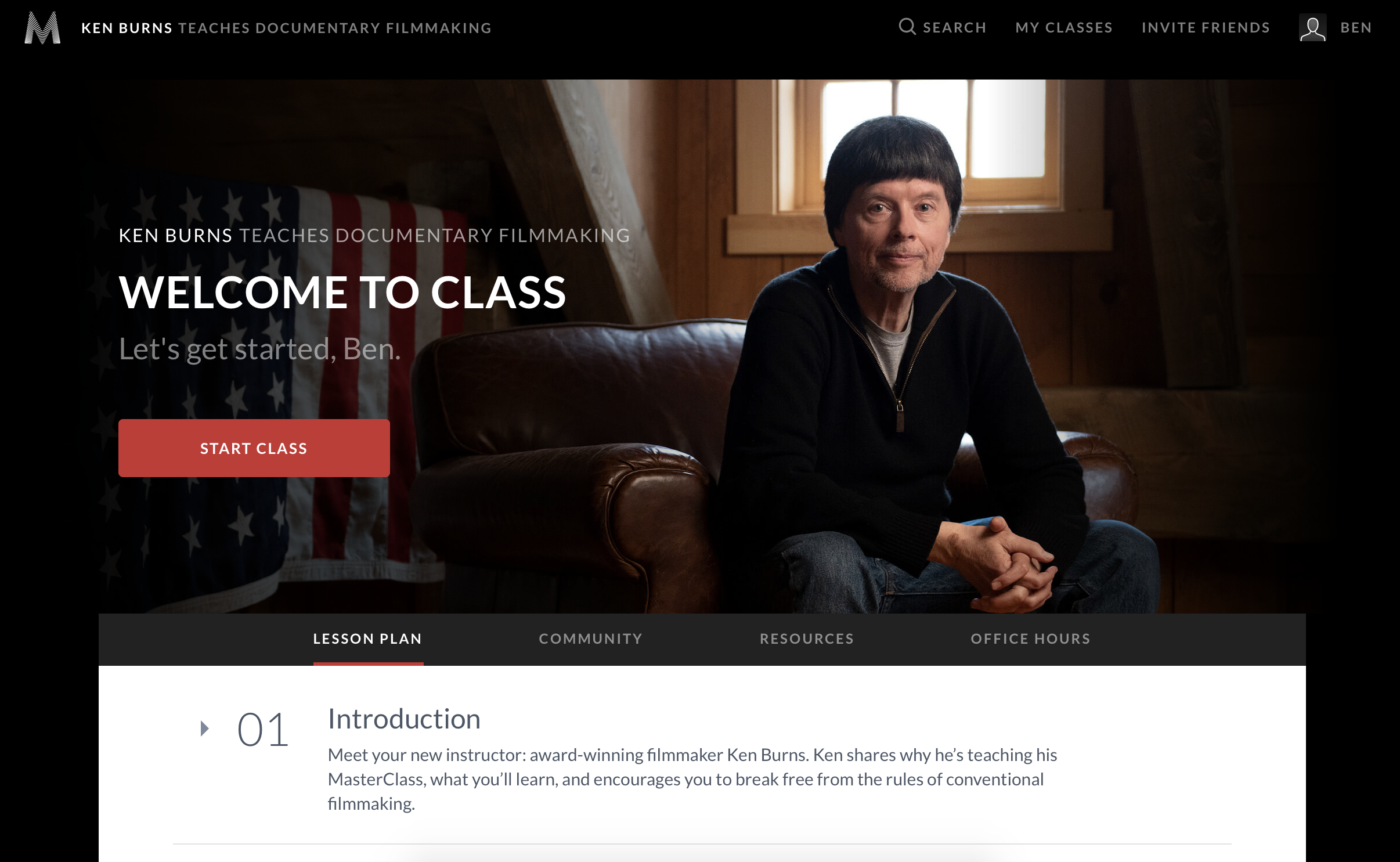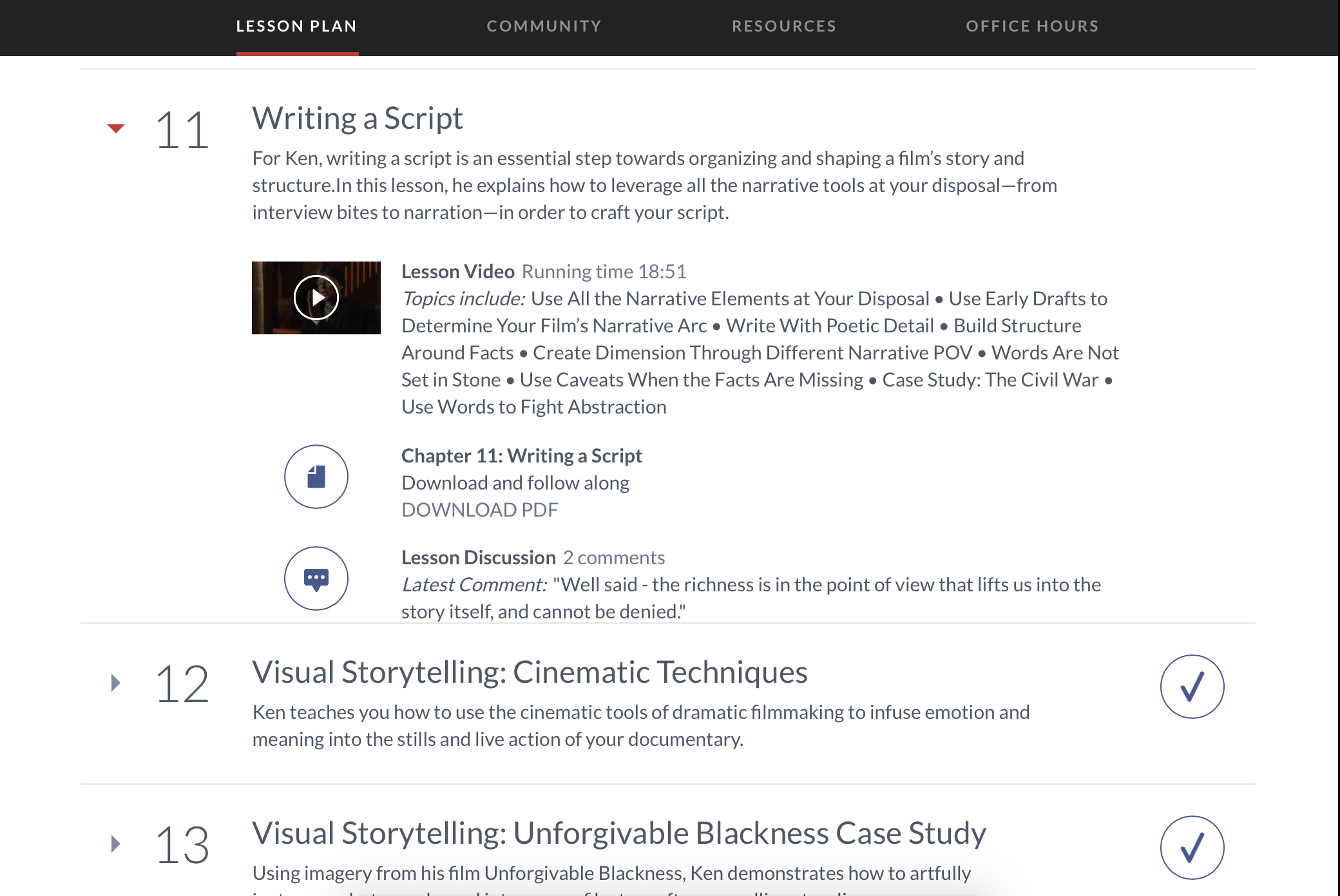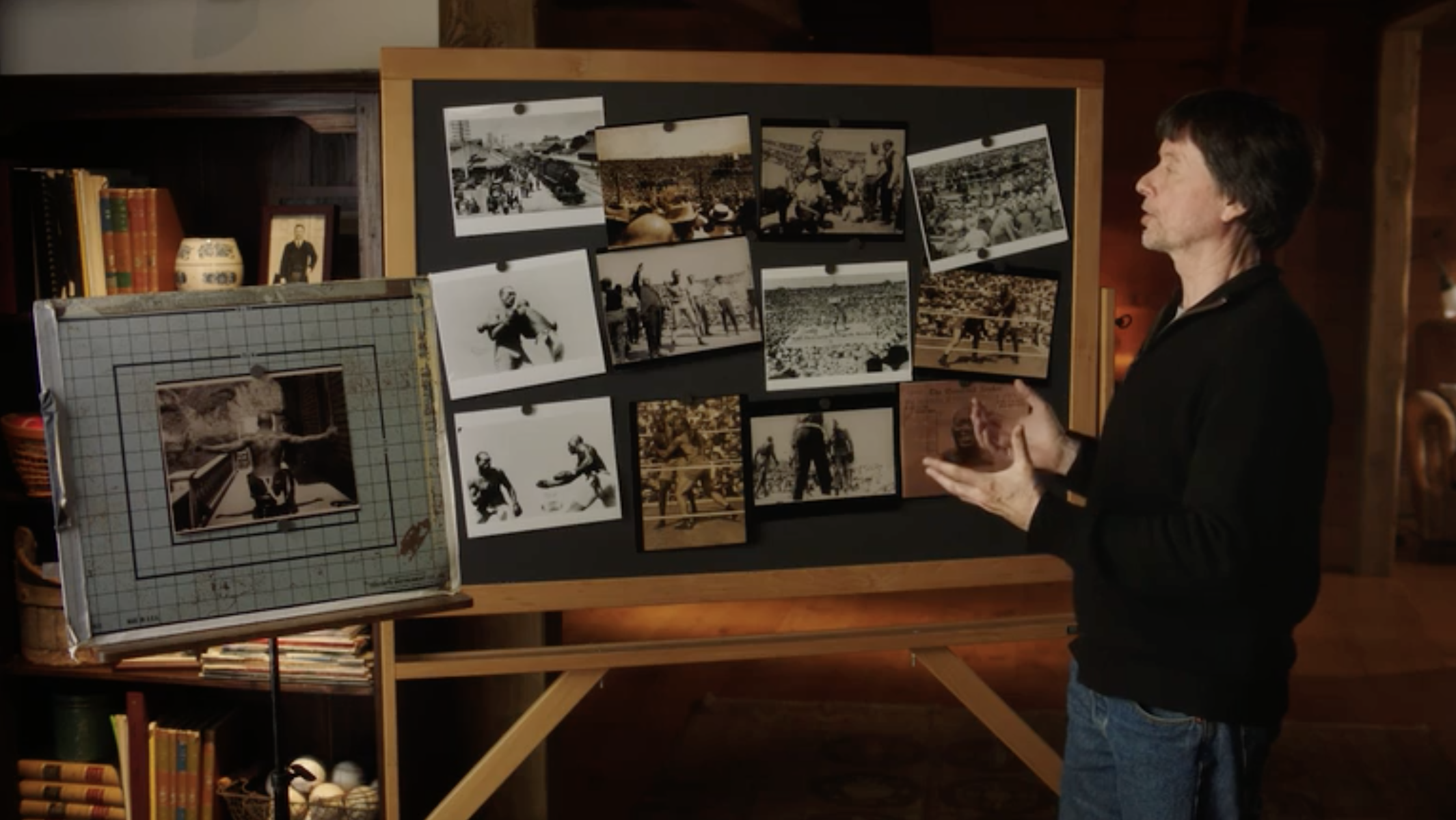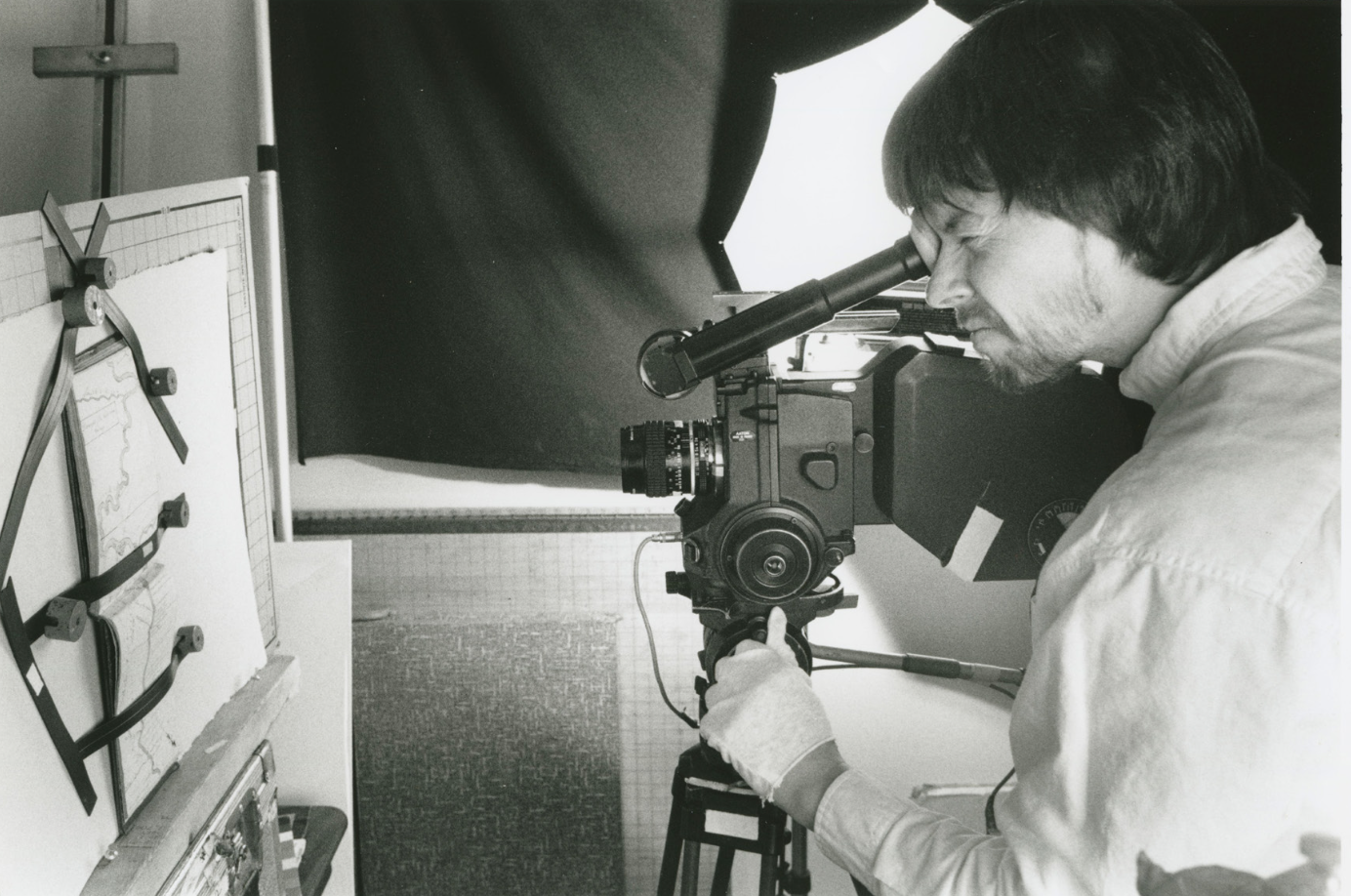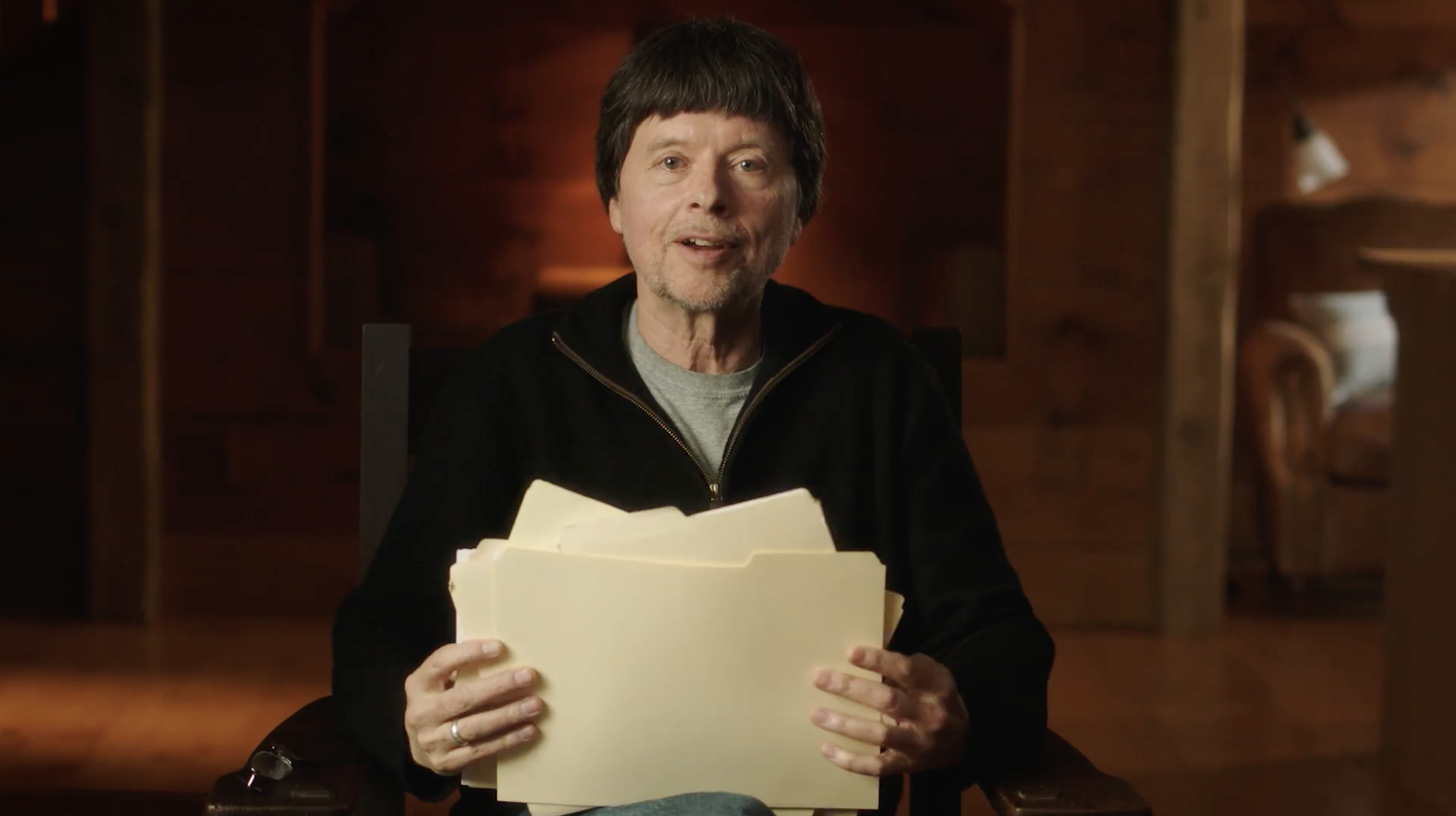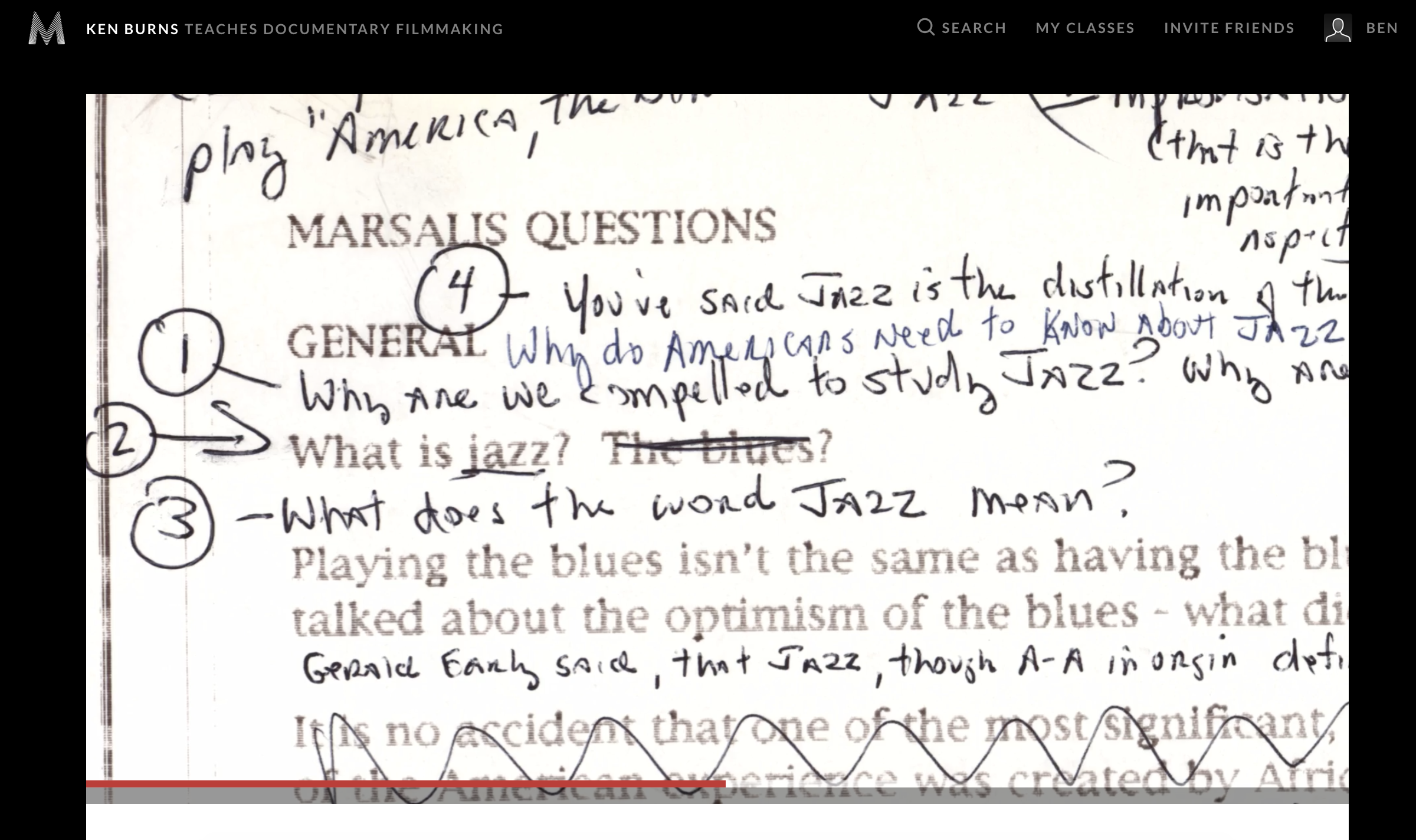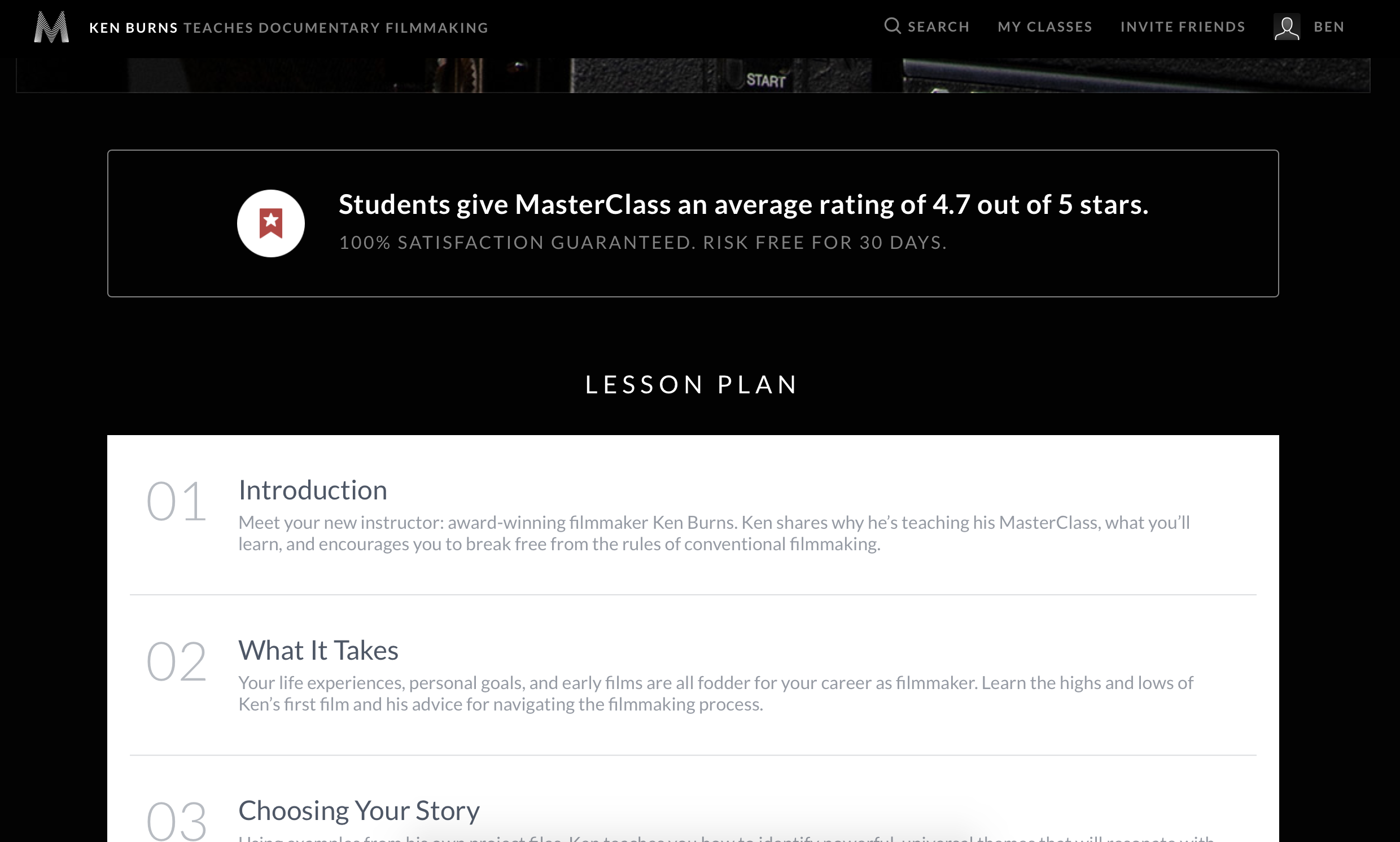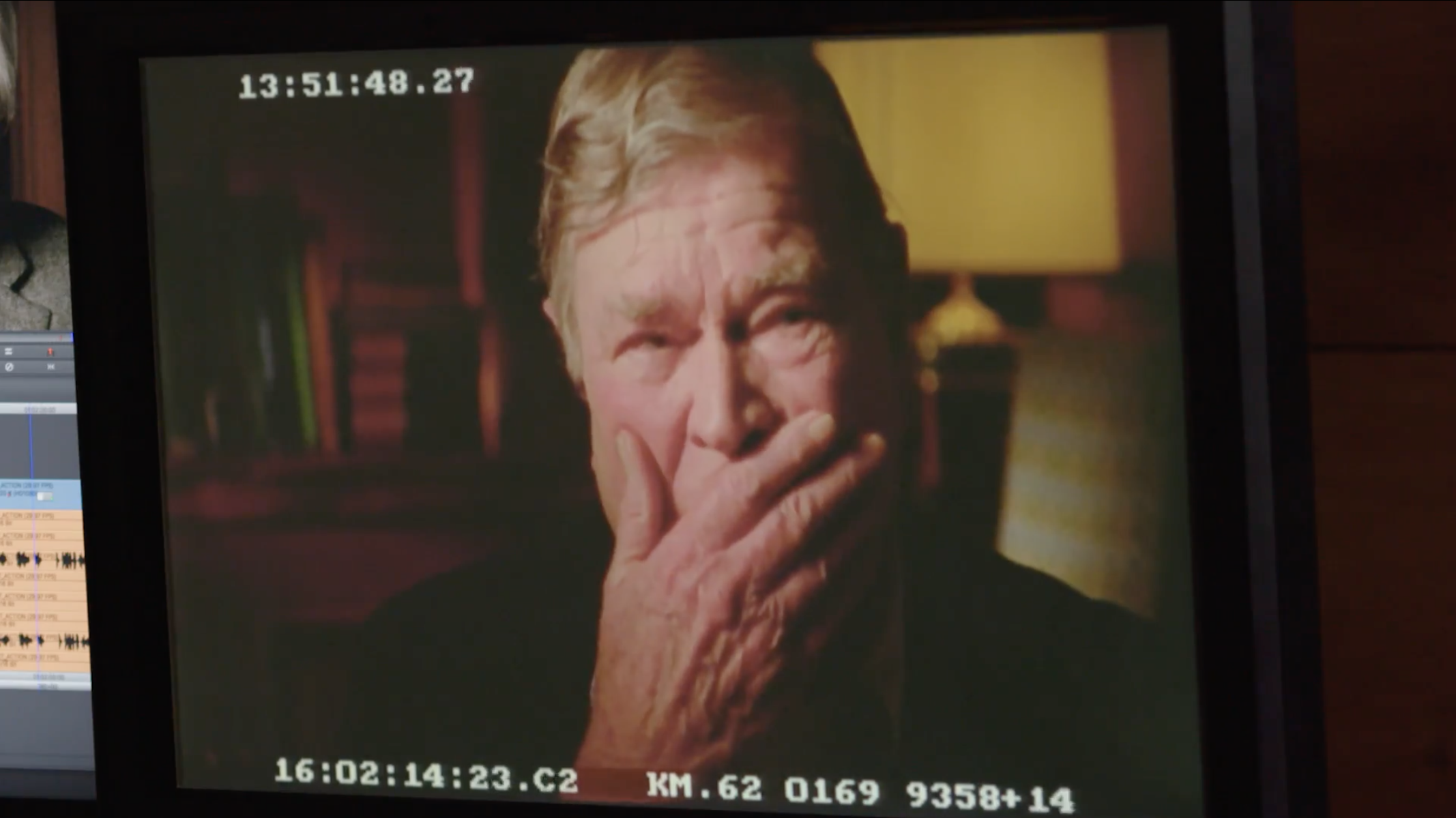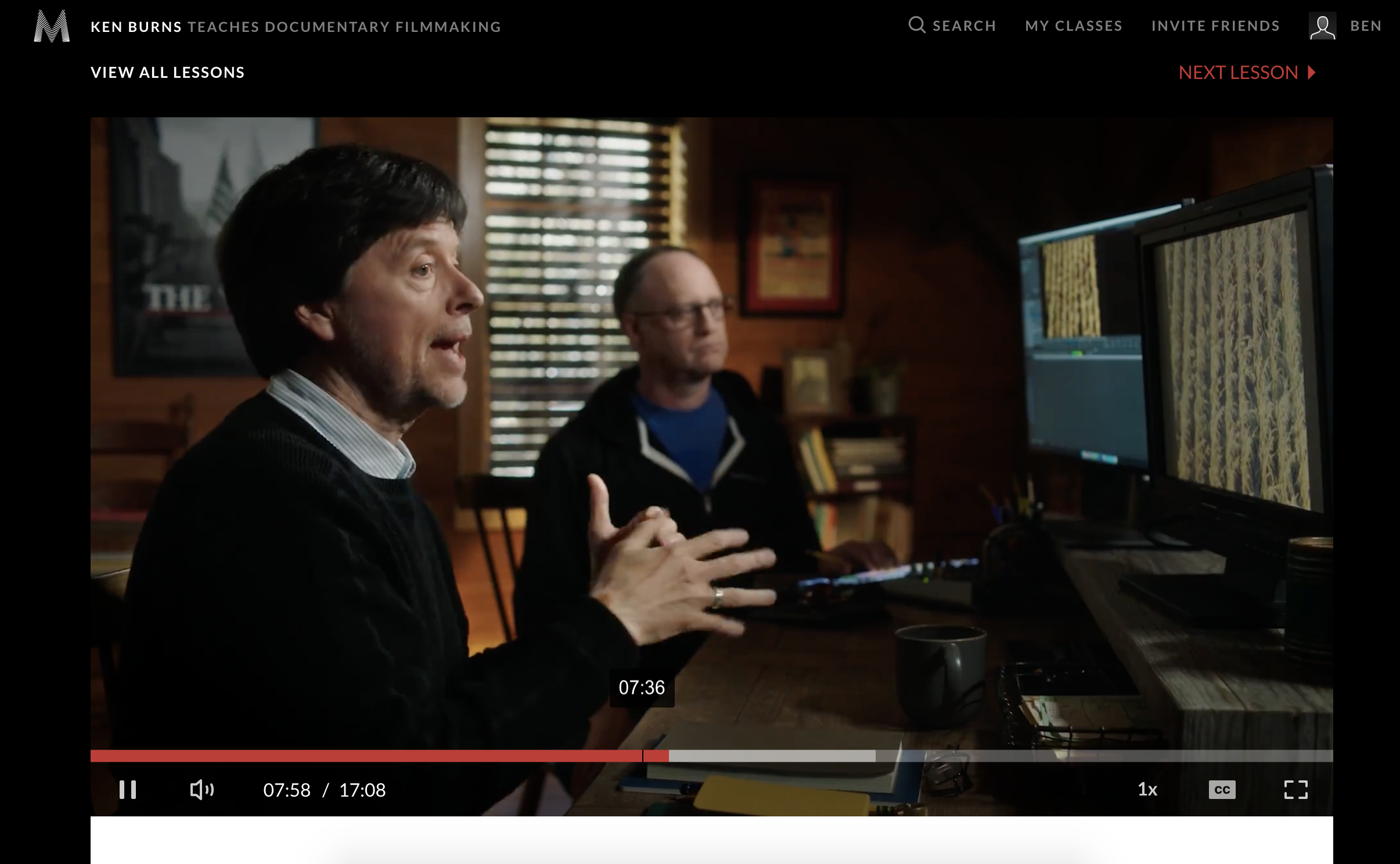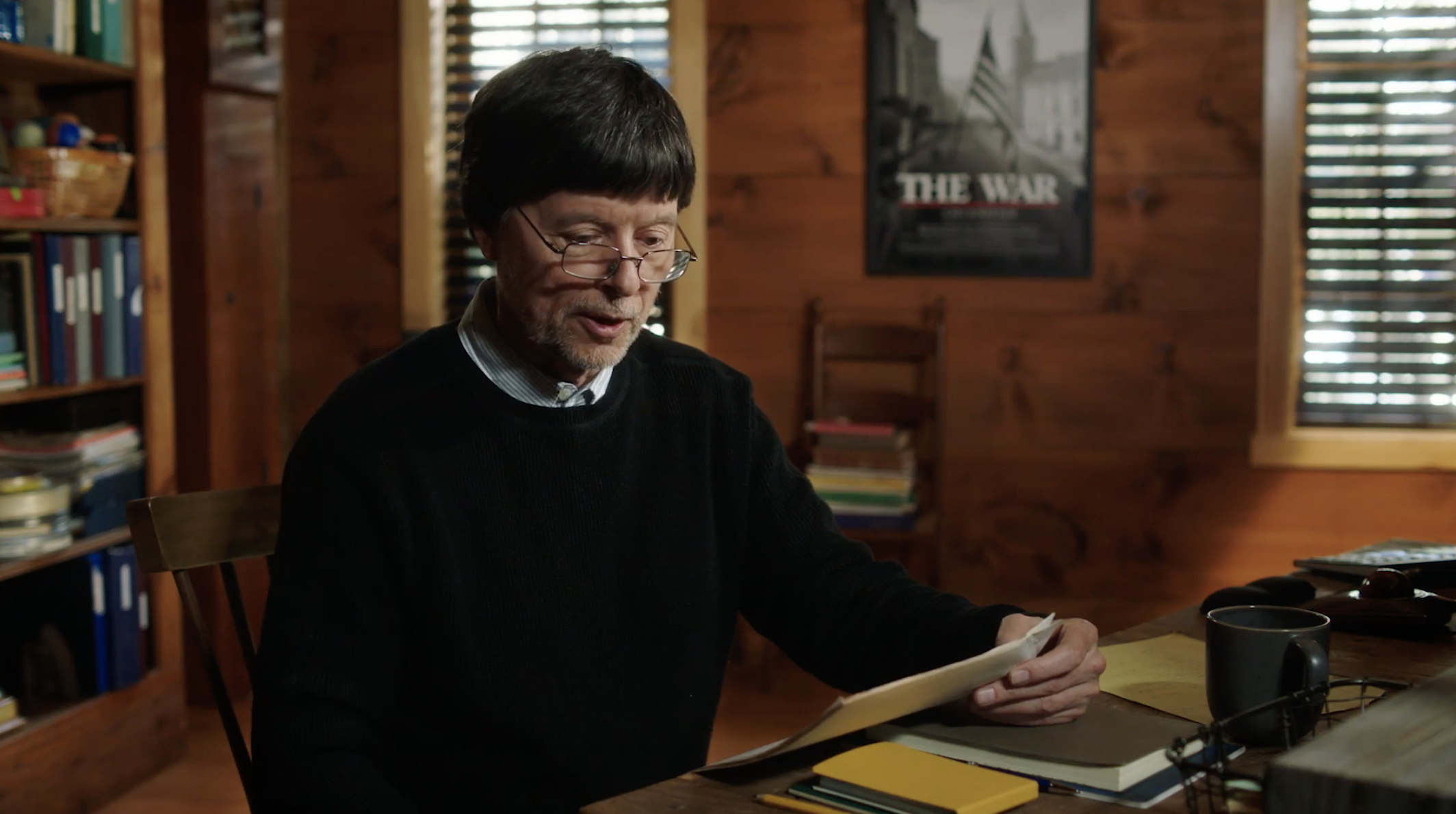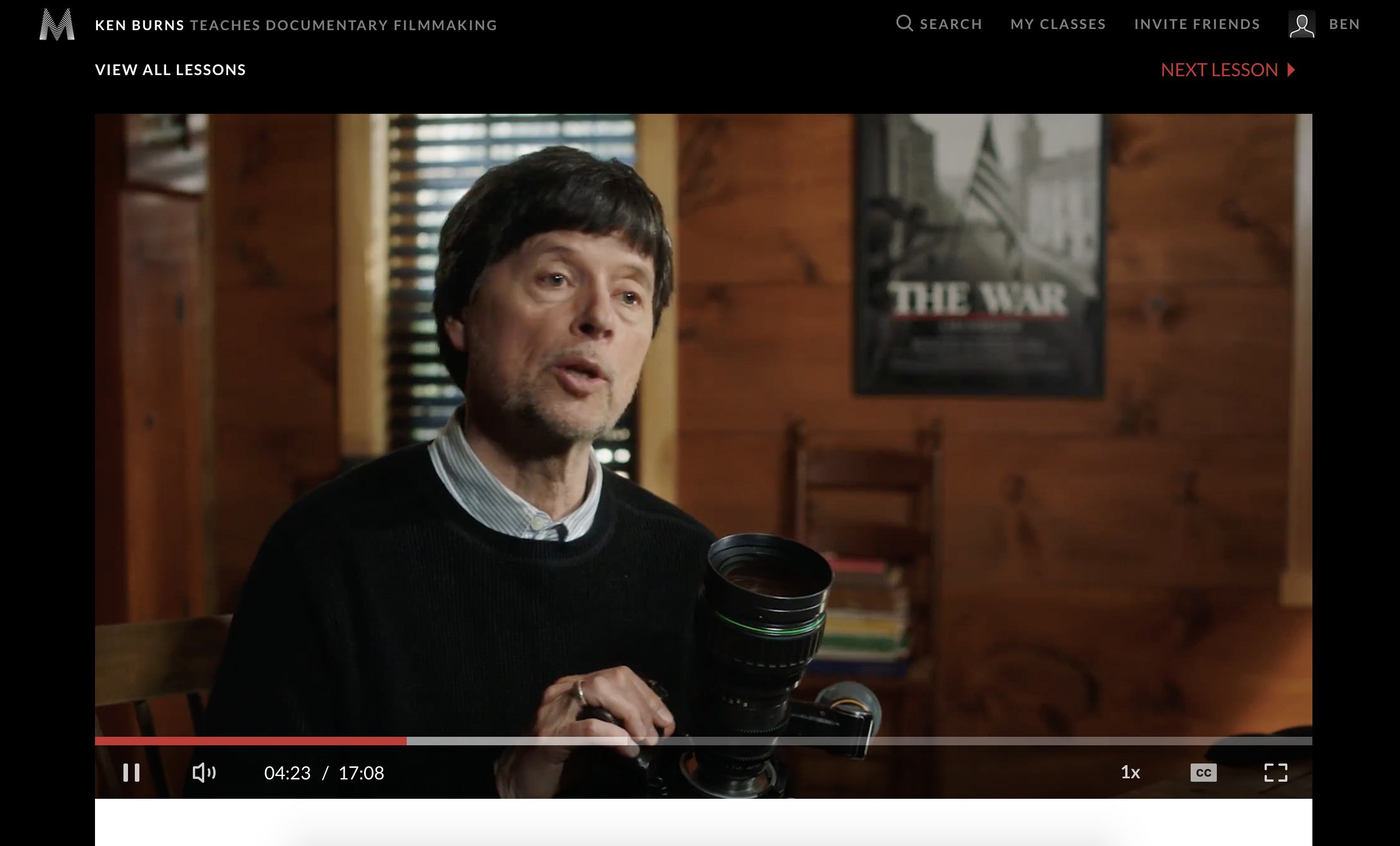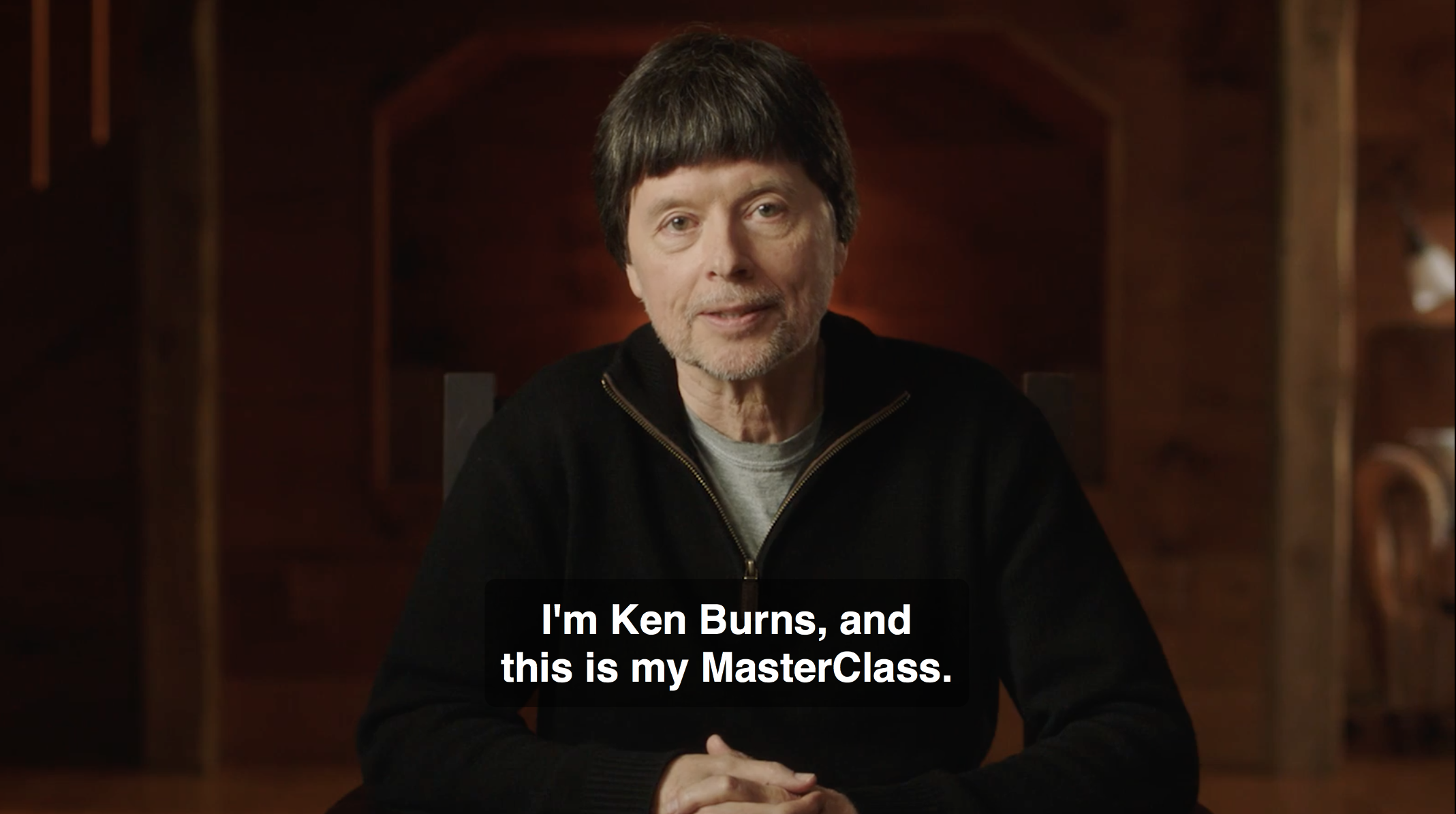The Ken Burns Teaches Documentary Filmmaking MasterClass is officially my favourite MasterClass of all time.
And that’s not light praise.
Because practically every MasterClass I’ve taken so far (and, thanks to the All Access Pass, I’ve taken most of them) have left me stunned, inspired, invigorated, motivated, and smarter.
But, in a catalogue of phenomenal learning experiences, Ken Burns has managed to take the already sky-high bar and raise it even further.
Wow.
This review is my effort of translating that feeling of “Wow” into words and attempting to explain why, out of a bunch of fantastic courses, the Ken Burns Teaches Documentary MasterClass is my favourite.
Of course, just because I’m impressed with this MasterClass doesn’t necessarily mean everyone will love it (hard as it is to believe).
Although I’m not a documentary filmmaker, the art form has piqued my interest for many years and I’m currently putting together a documentary as a hobby.
I’m also a creative and storyteller – so, obviously, there’s huge overlap and lessons to be learned from Ken.
If you’re not the creative type, have no interest in documentaries, no interest in Ken Burns and his work, or no interest in learning the process of someone at the top of their field (he’s one of the greatest documentary filmmakers after all), then this MasterClass probably won’t be for you.
But I’m assuming you do fit into one of those categories, so this review is likely for you.
Now let’s get into the review.
Ken Burns Teaches Documentary Filmmaking MasterClass Review
If you have any knowledge of documentaries, you already know Ken Burns.
Even if you aren’t familiar with his work, you probably already know about the panning and zooming style with still imagery named after him: the Ken Burns effect. If you’ve edited any home movies on an Apple computer, you’ve seen this name. Steve Jobs specifically asked Ken to use his name in the software.
If you aren’t familiar with Ken, you should check out some of his documentaries.
These films in particular will blow you away:
- Jazz
- Baseball
- The War
- The Civil War
- The Vietnam War
- The National Parks
- The Central Park Five
The Ken Burns MasterClass is broken up into 26 video lessons
That’s 5 hours of video content (not including Office Hours where students can ask Ken questions), with each module running between 10-20 minutes.
There’s also a 156-page workbook crammed with exercises, homework, and assignments that could keep you busy for months.
You know the Ken Burns MasterClass is going to be magnificent right from the start.
MasterClass always nail the opening video. But I can say the Ken Burns MasterClass has, without a doubt, one of the most thrilling openings I’ve ever seen.
It’s beautifully shot, the message is evocative, the music arousing, and the excitement sweeps you away.
Before diving into the core of the class, Ken tells us that the MasgterClass is all about finding your own road and giving you something that will throw you in at the deep end so you can really learn.
The course is set up so you can delve deep into how one writes, first person voices, archives, footage, music, sound effects, sound design, and everything else that goes into making great documentaries.
Ultimately, the MasterClass is there to help you liberate yourself from the “tyranny of conventional wisdom” and what you think you “should” do. It’s about hitting the reset button.
Having finished the Ken Burns MasterClass, I can say those aims have definitely been met.
The course kicks off with a invigorating and inspiring discussion about what it takes to be a filmmaker and call to action from Ken for us to be part of the documentary renaissance, which has been ongoing since the mid-eighties.
We hear about how Ken first got started and the way he talks deeply and candidly about his debilitating daily anxiety making his first film (his greatest teacher) and how he thought he was going to have a nervous breakdown is incredibly effective tonic to any beginning creative feeling daunted by the road ahead.
One of the first things that struck me in the Ken Burns’ MasterClass was this:
The speed with which Ken speaks intellectually is astounding.
He has so much great insight into work and creativity and art and the human condition that it’s hard to keep up but easy to be heart-poundingly inspired.
We start off with the important discussion about knowing your creative goals and the questions you have to answer first before making a documentary film.
It doesn’t matter if you have the talent, if you can’t answer Ken’s two questions, you’re out.
The course had barely begun and I was already struck by the value I’d received.
If MasterClass released the first opening 15-minute lesson in the Ken Burns MasterClass, entitled ‘What It Takes’, on YouTube, I could see it gaining millions of views and being heralded as one of those top motivational videos. You know, the types of pump-up videos creatives watch when they’re feeling unsure of their abilities and they need something to kick them back into action.
We learn about expecting problems and how to transcend them, how to be a jack-of-all-trades, about cinéma vérité, and only a few lessons in two things had happened to me:
- I was physically overcome with a surge of positive energy.
- I cried.
This was one of the most energetic masterclasses I’ve experienced and it made it incredibly bingeable, tiring in a good way, extremely valuable as a schooling (for artists of all colours and stripes), and resulted in me filling my notebook with so many notes my hand started to cramp.
This course lit me on fire with passion.
And Ken Burns, if you’re reading this…
You are THE ONLY MasterClass instructor who has made me break down and weep tears….
And you did it in the first lesson.
I’m not kidding. If you get past the half-way mark on the first lesson, one of the most motivational videos I’ve seen in a long time, and your eyes are dry, you’re probably emotionally dead inside. Seriously… I guarantee goosebumps and shivers at the very least.
What does Ken do for a living? He wakes the dead.
He gives people an outlet with which to explore complicated emotions they never have before.
Each individual lesson is a call to action for artists like none other I’ve ever seen in my life.
There is more valuable advice in just one lesson than most courses have in their entire run.
After a deep discussion on why we have to “go to the mattresses” and what we are willing to sacrifice for our art, the course really gets rolling with practical advice.
We get into how to choose our stories. And Ken’s discussion on how to choose stories that fire on all cylinders and hold up a mirror to you simply blew me away.
It’s only when an idea leaves being an idea and goes down to the heart is when I say yes to something.
We learn how to become idea collectors and get a real treat in the form of Ken showing us his folders of ideas that he has never showed anyone before – these are the ideas that left the lists of ideas and he got excited about but hasn’t yet followed through with and maybe won’t.
Ken talks about films that haven’t been made yet, but are really great films and he doesn’t know why they haven’t been made but he doubts they’ll get made.
This section broke my heart as an artist – someone who has so many ideas and knowing that the vast majority of the good ones will never come to fruition.
Man… all of Ken’s ideas got me so excited. If I had any experience in filmmaking I’d offer my own services FOR FREE in a heartbeat to get these passion projects made.
- Side note: when you take the class, look in the student comment section. You’ll see a lot of students echoing my thoughts and saying “Wow”, “Wow”, “Wow”.
After getting real in-depth about story, how to look for the world in a grain of sand, how to tell stories beyond the boundaries of yourself, and a fascinating and incredibly eye-opening discussion on finding the universality in the Other, we then get into the research lessons.
This is not a class where you slack off and watch mindlessly.
That’s not to say it’s not enjoyable. Because I can’t remember the last time I’ve had so much fun listening to someone talk long-form. But you really have to engage with this material because it is deep, deep stuff.
The research part of the course really blew me away and gave a fascinating insight into an incredibly effective process of immersion preceding the creation.
We learn how to find the deepest sources possibly and hear about how Ken got his hands on some private home video tapes of the Vietnam war – and they made the person who took them a character in the film. Unbelievable footage.
And once again I teared up…
This is what you never knew starting. And if you’re courage-able to the end, then you have the possibility for serendipity and surprise. And that’s what life is about too.
We learn how to anchor our stories in facts, how to keep ensure there’s not too much daylight between subject and story, how good research should change your mind (each production should result in your “molecules completely rearranged”), how to seek out and juxtapose different perspectives (using the Gettysburg address as a riveting example).
We learn how to tell a true story, how to sculpt stories in a way that honours the opposing perspectives and portrays a larger narrative picture, how to respect the drama of truth, and how far you can go with art before you begin to mess with the truth.
We learn how to marry fact and faith, how to honour the collective rather than objective truth, how to take poetic license (which was reminiscent of the Aaron Sorkin MasterClass), and how to tolerate contradiction.
“There’s no such thing as objectivity in filmmaking.”
Then we get into treatments, pitching, and funding.
We learn the purpose and process of the most important fundraising tool: the treatment.
Ken shows us how to communicate our passion, vision, and knowledge, and how to find your film’s story while simultaneously raising money – the “double bang” as Ken calls it.
We learn how to develop a realistic budget – monetary and time budget.
Then we get into the four categories of documentary funders you can approach and the pros and cons of each.
This is very in-depth, even though Ken says there is ‘no set way’, we do learn what to do and how to do it and who to start approaching.
We learn how to take an ignorant but potentially curious person, make them curious, and make them no longer want to be ignorant.
Of course, that’s not even a fraction of what you get in this MasterClass.
Then we start getting into structuring a documentary narrative and how to hook your audience immediately.
We’re treated to fascinating lessons about arcs – on the macro (episodes/seasons) and micro levels (scene/dialogue). And how Ken Burns and Steven Spielberg obey the same laws of storytelling – the only difference is “he can make shit up and I can’t”.
Before you even reach the half-way point of the MasterClass, you’ll be convinced of the same thing as me:
Ken Burns is not only a born storyteller, with supreme skill crafted over years, but he’s a born teacher and educator brimming with passion that overflows so heavily you can’t help but be swept up in it.
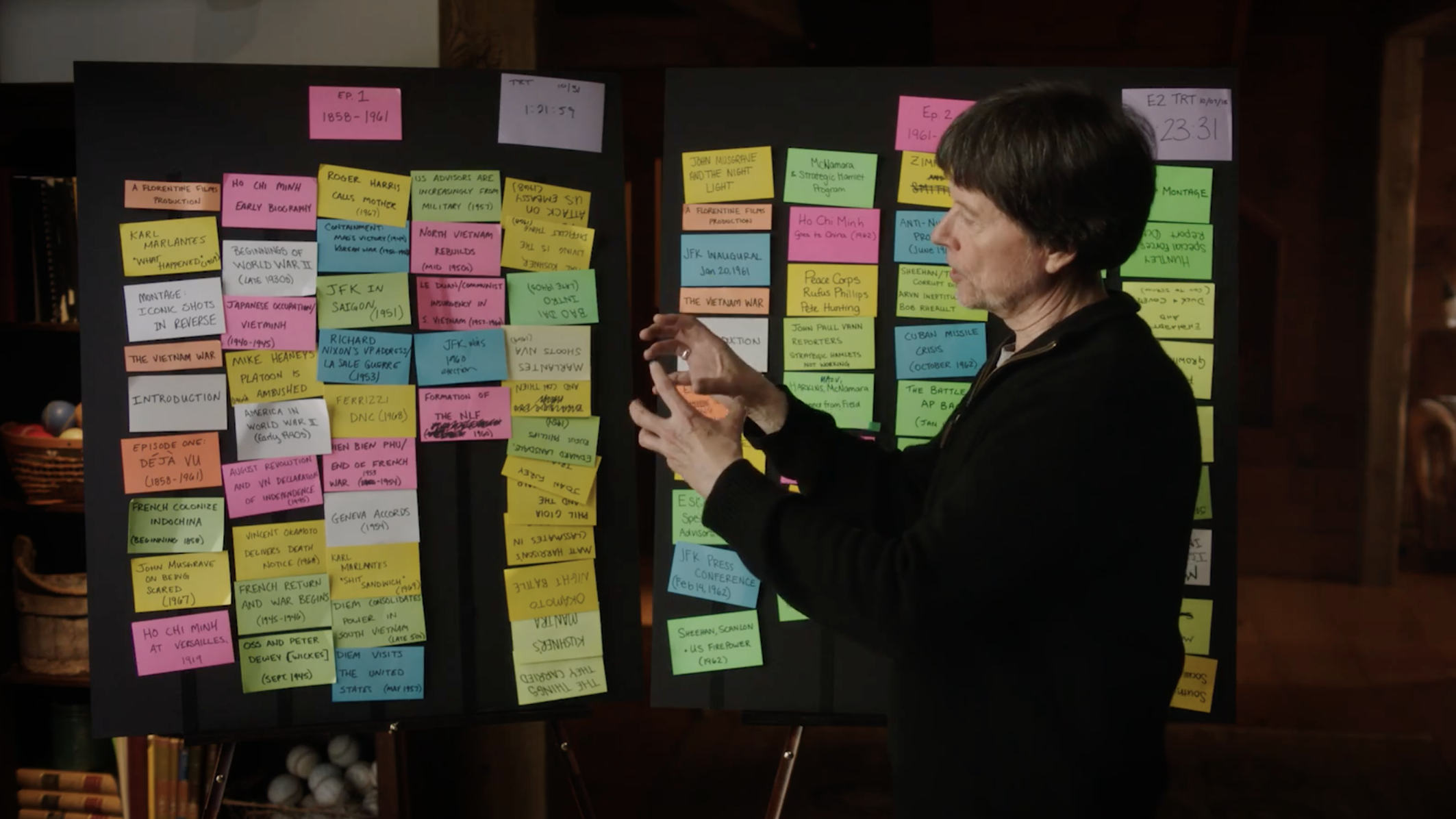
The case study of The Vietnam War episode boards (as opposed to storyboards) was real eye-opener and an educational treat.
I loved everything about sourcing archival materials and the great hands-on practical advice about how to get your archival footage to be unique (going to the original negatives, etc), how to look beyond the great men, follow leads, and dig for evidence of ordinary people’s lives. And I loved Ken’s analogy of how and why collecting research material is like making maple sap.
We also get into how to shape non-fiction characters!
This was an enormously interesting lesson for any creator / storyteller – particularly thought-provoking was the discussion about having to permit a dark side to good characters (e.g. Lincoln) and the character arc discussion was incredibly helpful and in-depth.
Then Ken starts teaching you how to write a script!
By this point, the amount of value in this MasterClass is bursting.
In one of the longest lessons yet, I had to break this one down into several viewings because it was so crammed with knowledge that I needed to assimilate.
Ken discusses the different narrative elements at your disposal, how to use early drafts to determine your film’s narrative arc, how to write with poetic detail, build structure around facts, create dimension through different narrative POV, and so much more.
We learn about visual storytelling and cinematic techniques
This is where you’ll REALLY understand the “Ken Burns Effect” – still photos being the DNA of what he does.
Analysing the Ken Burns effect was exhilarating: how he takes a still photo and says “that’s my master shot” and it has a long shot in it, a medium shot, a close shot, an extreme close up, a tilt, a pan, a reveal, inserts of details.
Ken shows you how to create meaning through juxtaposition, how to activate your audience’s imagination, how a visual experience becomes an aural experience, how to create meaning through duration and motion, and how what people think of the Ken Burns Effect is usually wrong. The Effect is “an attempt to will a still photograph to life in the service of complex dramatic narrative exposition.”
Then, with a case study using the film Unforgivable Blackness, Ken shows us how he puts his stills together and chooses his shots and why.
It’s incredibly useful to see Ken’s process.
After he walks us through his logic and reasoning on the episode board, we then see the actual footage in action – a real joy and a wonderful learning process.
Ken was passionate throughout the whole course but his passion reaches crazy heights whenever he’s standing in front of his episode boards. He’s jumping with excitement.
Then we get deep into interviews.
How and who to approach, all about pre-interview techniques, the common challenges you’ll face and how to overcome them, how to put your interview subject at ease, be a visual listener, how simple questions make for the widest possibilities, how to honour your interview subject, how to navigate a challenging interview, and more.
There are A LOT of instructors giving interview advice on MasterClass and the advice all compliments each other brilliantly.
If you find you have an interview coming up, getting the All Access Pass and getting advice from the likes of Sorkin, Rhimes, and Woodward along with Burns is a no brainer.
I can’t even begin to convey just how amazing this part of the course was.
Emotional and educational to utmost possible degree.
Not only did I learn A LOT.
But I cried… again.
Here’s an interesting kicker…
I consider the Ken Burns MasterClass “golden”, as in it’s filled with “gold”.
But after commenting himself on one interview as being golden, Ken really gets personal and says that saying the word “golden” is “so incredibly insulting”. Like we’re in a business where we measure success by what we extract from someone (like a vampire) but that’s not what it’s about – it’s about reciprocity and honour and we do a disservice calling something gold when really someone has generously given a piece of their soul.
So I’d like to apologise to Ken because I have considered your lessons “golden”. But really what I see is that you have given your soul to this class. Not a small piece. But a staggering chunk of heart and soul are in these lessons.
I defy anyone to find more soul in an educational experience of this calibre.
After learning how to put emotionally potent interviews to use, we get into non-fiction cinematography, where we learn about the kind of things we have to do to get the best shots (with a great story about how Ken and his team obtained the best footage they ever shot).
After a discussion about splicing live cinematography alongside archival scenes, we actually get to see Ken taking us through his work with it on the screen simultaneously alongside his commentary.
I can’t emphasise enough how valuable this stuff is.
We also get deep into the power of music.
Music is not the icing on the cake. It’s the fudge.
We learn about how music should be done early on and how the music in Ken’s films is a director in its own right.
I loved hearing how his technique is the exact opposite of scoring – it’s about baking in the music, trimming a narrative or dialogue to fit the music’s build properly.
I also loved his talk about how to build emotional recurring themes with music. Music as “an establishing shot in your heart” – tremendous way of putting it. So evocative.
There’s also a really great discussion on the expense of music.
For example, Ken has 120 music cues but he couldn’t even afford 12. But these great musicians like the Rolling Stones were willing to say go for it because they get it. They get the power of your message and story.
By this point, another thing I’m salivating over in this MasterClass is the abundance of documentary footage.
This aspect really helped to emphasise all of the great points Ken makes.
We learn about the editing process too.
You get to hear about how Ken developed a process he calls the ‘blind assembly’ in an attempt to reduce the time and energy spent refining story structure in the early stages.
We learn how your first assembly should feel and where you should go from there.
We learn a bunch of editing principles, about the ‘merciless triage’ and sacrificing the things we love in service of the story as a whole.
Then we get this phenomenal editing case study, using The Vietnam War introduction
Ken has never done this before but he uses early never-before-seen cuts of the documentary in order to show how to sculpt the film in the editing stages.
We then get into recording and using voice overs, sound design, the artist’s responsibility, sharing your film, and so much more.
“I believe it is the artist’s responsibility to lead people into hell, but I also believe it’s important to lead the way out.“
Honestly, I could keep raving about the Ken Burns Teaches Documentary Filmmaking MasterClass all day…
But this review is already super long and you really have to see it for yourself.
If you’re a filmmaker or a creative, I guarantee you’ll love it and get a ton of value from it. Especially if you grab the All Access Pass.
The class will propel you forward and really make you want to get up and start making films that have meaning and importance to you.
You can enrol in the Ken Burns Teaches Documentary Filmmaking MasterClass here.
